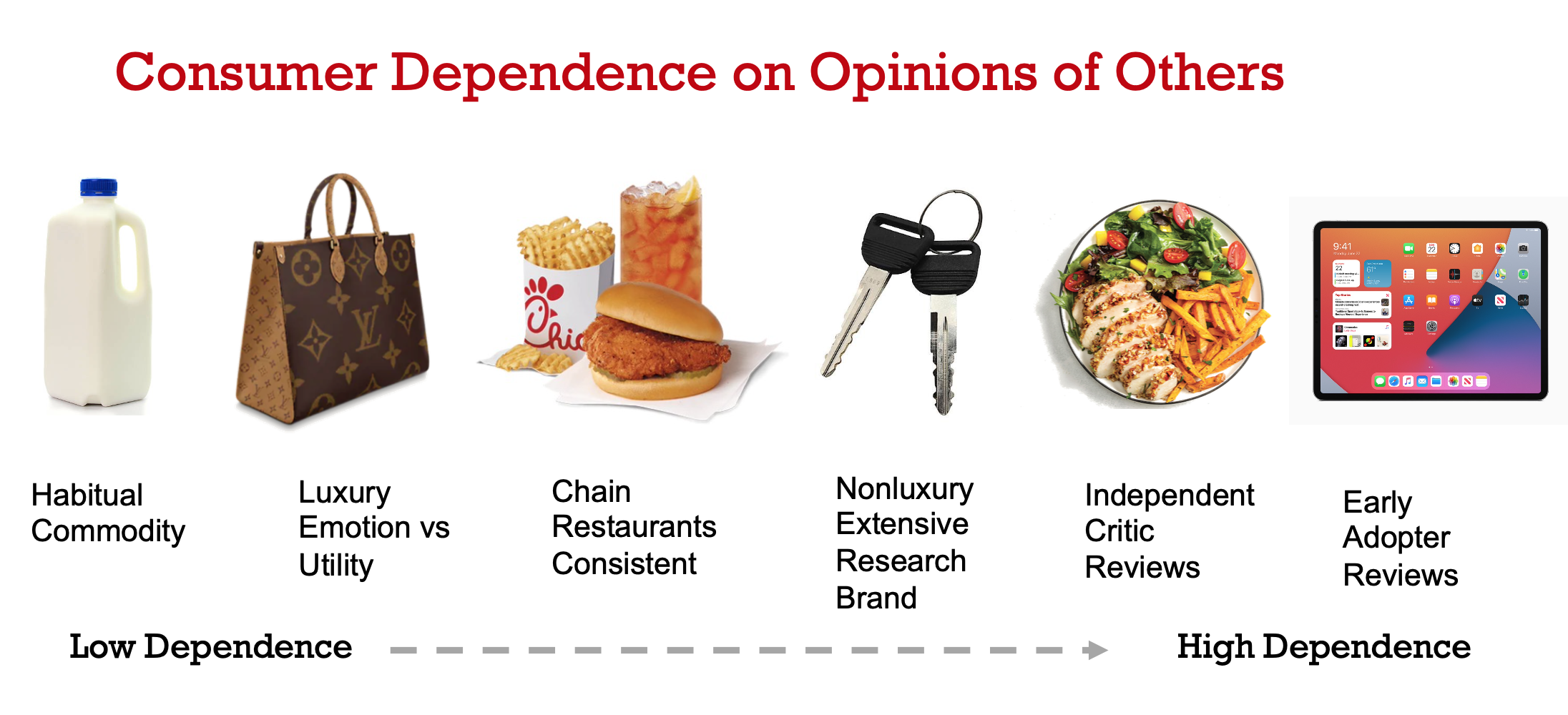The Future of Consumer Reviews for Healthcare Organizations – Recap
Our latest healthcare marketing webinar was about managing online reviews and why it matters. Healthcare marketers might think they’re above needing to worry about Facebook comments or Yelp reviews, but these certainly contribute to your overall brand perception for certain patients. Let’s learn what influences patients and how you can properly manage your online reviews.
Watch the entire webinar here!
How do consumers make purchasing decisions?
First up, we need to understand how consumers generally make purchase decisions. Some things – like a gallon of milk – have low dependence on the opinion of others. You typically do it without a second thought. When it comes to a more emotional or high-value purchase like a new car or new electronics, people are more likely to seek out reviews or look for their friends before committing to a big purchase.

So, where does healthcare fit in this spectrum? It depends on the situation. Sometimes, decision-making power is taken away from the patient if they’re incapacitated or taken by ambulance. But in instances where patients can choose, it can be emotional, it can be based on utility (closet/most convenient location), or it could be based on their existing brand preference. This is why brand and making emotional appeals to prospective patients are so important. Let’s break it down more.
Factors influencing healthcare purchasing decisions
- Preferences, beliefs, experiences and emotion
- Direct experience with the brand
- Religious beliefs
- Patient insights available to the public
- Reputation, outcomes, bedside manner, timeliness, insurance coverage, technology, doctor reputation.
- Information from marketers
- Educational (Info sessions, webinars, blog, website, etc.)
- Advertising
- Public Relations
- Physician Relations
- Information from other people
- Physician referrals
- Friends and family
- Crowdsourcing
- Online reviews
Do online reviews really matter?
Once again, it depends. When it comes to the Silent Generation and older Boomers, they might not care about reviews or have limited access to technology in general. They’re more likely to trust what their doctor tells them and not deviate from their care plan or seek second opinions. However, Gen X and below tend to be much more empowered and will do a lot of research before booking an appointment with a new doctor or service. So yes, reviews absolutely matter for a large portion of your patients!
Tips for Managing Online Reviews
- Be vigilant, assign someone to watch: Monitoring and responding to online reviews should be part of someone’s job description, not an afterthought! Make sure this is clearly delegated.
- If a negative comment comes up, stay calm, pause… Often, your own audience will comment back to defend you.
- Watch trends, not individual reviews: Are you constantly getting reviews about your wait times, the cleanliness of the emergency room, or about a particular staff member? Identify and address these problems as you see the pattern develop.
- Share reviews with internal teams: Share positive reviews to improve morale or negative reviews to let staff know their problem areas and how to fix them.
- Acknowledge negative reviews: Apologize publicly and offer to take the conversation offline to solve their problem. Even if the problem cannot be resolved, outsiders will see you care enough to respond. Ask the reviewer to delete or edit negative posts when the issue has been resolved.
- Authenticate the review: If the review is threatening, offensive, illegal, a privacy violation, or an impersonation, you can report a policy violation to have the review removed.
Conclusion
Unlike restaurants, salons, or shops, the good thing is that your community generally wants to see you succeed and give you the benefit of the doubt. Especially after the pandemic, they’re more understanding and won’t go out of their way to leave a bad review unless something has legitimately upset them. So be open and honest. Own up to mistakes. After all, trust is the bedrock of your brand.
Need help managing your online reputation? Don’t hesitate to reach out.
Download the slides here:

